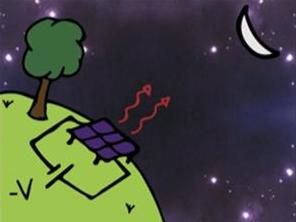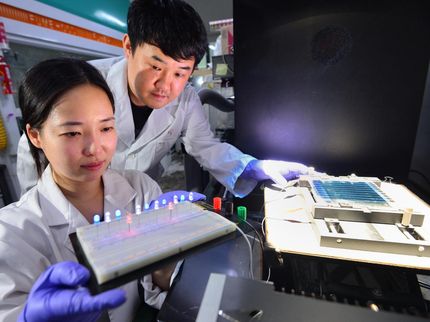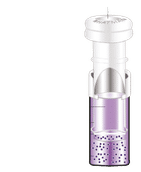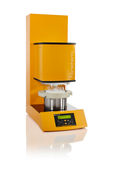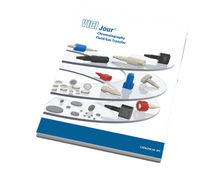European Research Alliance for the Simplified Production of Organic Solar Cells
Advertisement
A new laser system is being developed to increase the effectivity of organic solar cells. A consortium under the leadership of the Laser Zentrum Hannover e.V. (LZH) is working on a tunable infrared laser system for the selective processing of organic layers in opto-electronical components.
A tunable infrared laser system for the selective processing of organic layers in opto-electronical components is the goal of the new research project IMPROV, which started in September, 2010. The EU has provided approximately 2.4 million Euros support from the 7th Framework Programme for the project, which will run until 2013. The Laser Zentrum Hannover e.V. (LZH) is coordinator of the project consortium, with seven partners from science and industry.
Organic photovoltaic solar cells (OSC) are made of thin layers of different photo-active polymer films. In order to produce a functional component, these layers must be, among other things, selectively structured. The UV lasers presently used for this process are not precise enough, which often leads to a 20% loss of the active area. With a new laser process – resonant infrared ablation, or RIA for short – this production step can be significantly improved. Due to the different absorption bands of each individual polymer film, RIA can be used for selective cutting, structuring or material removal within the whole layer system. In order to achieve this, a short pulsed laser in the infrared wavelength is used, which can be tuned exactly to the best suitable maximum absorption of the layers to be processed.
This is where the EU project IMPROV „Integrated Mid-infrared high Power source for Resonant ablation of Organic based photovoltaic devices“ comes in, in which a widely tunable, infrared short pulsed laser in the wavelength spectrum between 3 and 10 m is being developed. In order to achieve this, frequency conversion of a 2° µm system in an innovative, non-linear crystal (orientation-patterned gallium arsenide) is necessary.
The market potential for plastic micro-processing applications is enormous. The planned laser system could greatly simplify production process and significantly decrease area losses, especially for organic photovoltaics, (OPV), but also for organic light emitting diodes (OLED) and organic thin-film transistors (OTFT).
Dr. Dieter Wandt, head of the Ultrafast Photonics Group of the LZH, is the IMPROV coordinator. In this project, his group is responsible for developing a completely fiber-based, mode-coupled, ultra-short pulsed thulium fiber laser with tunable output radiation in the wavelength range of 2 µm. Additionally, the typical repetition rate of 40 to 60 MHz must be reduced to 1 MHz. The other partners from Belgium, Denmark and France will amplify the laser output in further thulium-doted fibers, and then convert the laser radiation to the infrared spectral range in optical parameter generators/amplifiers based on GaAs crystals
Dieter Wandt is conscious of with the difficulty facing the LZH. "There is hardly any research on 2µm thulium-based ultra-short pulse fiber lasers, and commercial optical components are nearly non-existent. Also, due to the wavelength range, there are no laser viewers." Nevertheless, the physicist is confident, since the LZH has already gathered experience with this kind of oscillator. Also, the LZH can make some of the fiber-based key components such as pump-light couplers, outcouplers, and filters themselves.
Project partners in IMPROV are, apart from the German firms BATOP und Heliatek, the Interuniversitair MicroeIectronica Centrum VZW (IMEC), as well as Multitel ASBL, NKT Photonics and Thales. Together they form the complete process chain, from development to industrial exploitation. Experiments using the laser system for the production of organic solar cells will be carried with the help of the the Heliatek GmbH in Dresden. Interest in the compact IR high-powered laser has also been shown by the plastic processing industry, where the excimer laser is usually used.



